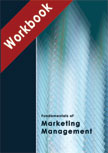Exubera Fiasco: What Went Wrong?
|
|
ICMR HOME | Case Studies Collection
Case Details:
Case Code : MKTG199
Case Length : 18 Pages
Period : 2006-2008
Pub Date : 2008
Teaching Note :Not Available
Organization : Pfizer, Inc.
Industry : Pharmaceutical
Countries : Europe/USA
To download Exubera Fiasco: What Went Wrong? case study
(Case Code: MKTG199) click on the button below, and select the case from the list of available cases:

Price:
For delivery in electronic format: Rs. 300;
For delivery through courier (within India): Rs. 300 + Shipping & Handling Charges extra
» Marketing Case Studies
» Marketing Management Short Case Studies
» View Detailed Pricing Info
» How To Order This Case
» Business Case Studies
» Case Studies by Area
» Case Studies by Industry
» Case Studies by Company

Please note:
This case study was compiled from published sources, and is intended to be used as a basis for class discussion. It is not intended to illustrate either effective or ineffective handling of a management situation. Nor is it a primary information source.
Chat with us

Please leave your feedback

|
|




<< Previous
Excerpts
Background Note
Pfizer was founded by Charles Pfizer (Charles), a chemist, and his cousin Charles Erhart (Erhart), a confectioner, in Brooklyn, New York, US. They set up the company in 1849, a year after their arrival from Germany. It was initially called Charles Pfizer & Company (CPC). The first medicinal product from the company was Santonin, a palatable anti-parasitic. In 1862, during the American Civil War, Pfizer increased production of its chemicals and drugs and doctors of the Union Army used them to treat wounded and sick soldiers. The company was moved to larger premises on Maiden Lane in the Wall Street area of Manhattan in 1868...
The Quest for the Inhaled Alternative
|
Diabetes is one of the major healthcare problems in the
world, and diabetes drugs are major revenue earners for many pharmaceutical
companies. Changing lifestyles have increased people's susceptibility to
diabetes and the number of those affected by diabetes worldwide is set to rise
to 150 to 220 million by 2010 and to 300 million by 2025 with the US being the
biggest market for drugs related to diabetes treatment. According to one
estimate, the overall market for diabetes treatments was worth US$ 15 billion
annually as of 2005. The oral anti-diabetics had the major share in the diabetes
treatment market. As of 2007, the global insulin market was estimated at US$ 7.5
billion, according to the Global Insulin Market report...
|

|
Pfizer Bets On Exubera
The New Drug Application (NDA) for Exubera was approved by the FDA in March 2005. The FDA provided marketing approval for the drug on January 27, 2006. Exubera was tested on 2,500 adult patients with type 1 and type 2 diabetes before approval was received. The approval of the world's first inhaled insulin was hailed as an important advancement in the treatment of diabetes, which had begun with the discovery of insulin in 1920s...
|
|
Marketing Exubera
Pfizer focused on providing comprehensive physician and patient education and training programs to increase awareness about the new drug. But this led to the drug being rolled out slowly and in phases. Commenting on the delay in the rollout of the drug, Katen Karen (Katen) then Vice Chairman and President of Pfizer Human Health, said,
"Our education programs and manufacturing preparations are time consuming. But we are taking the time necessary to do the job right. We are working to meet not only initial demand for the medicine, but also continued demand from prescription refills. "To support the patients and physicians on the new drug, Pfizer also started a 24/7 call center... |
Criticism >>
|
|










